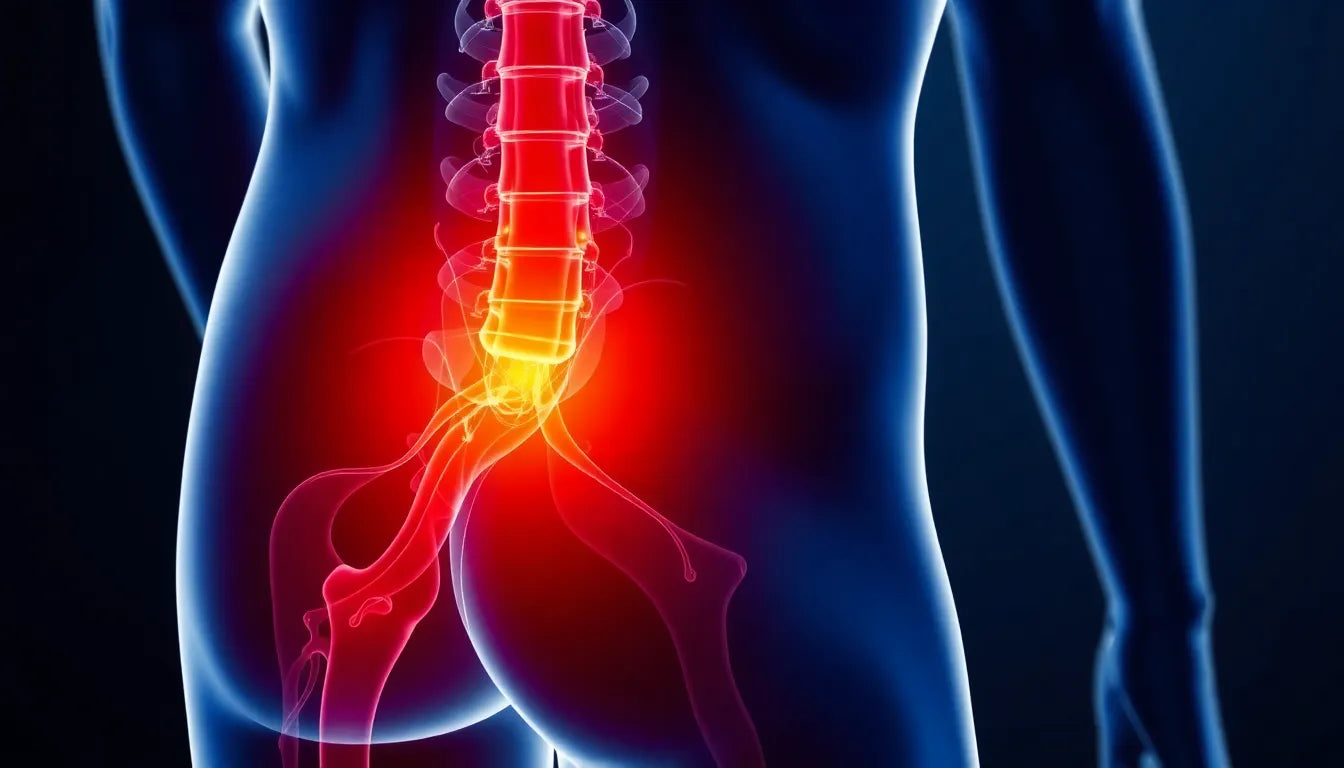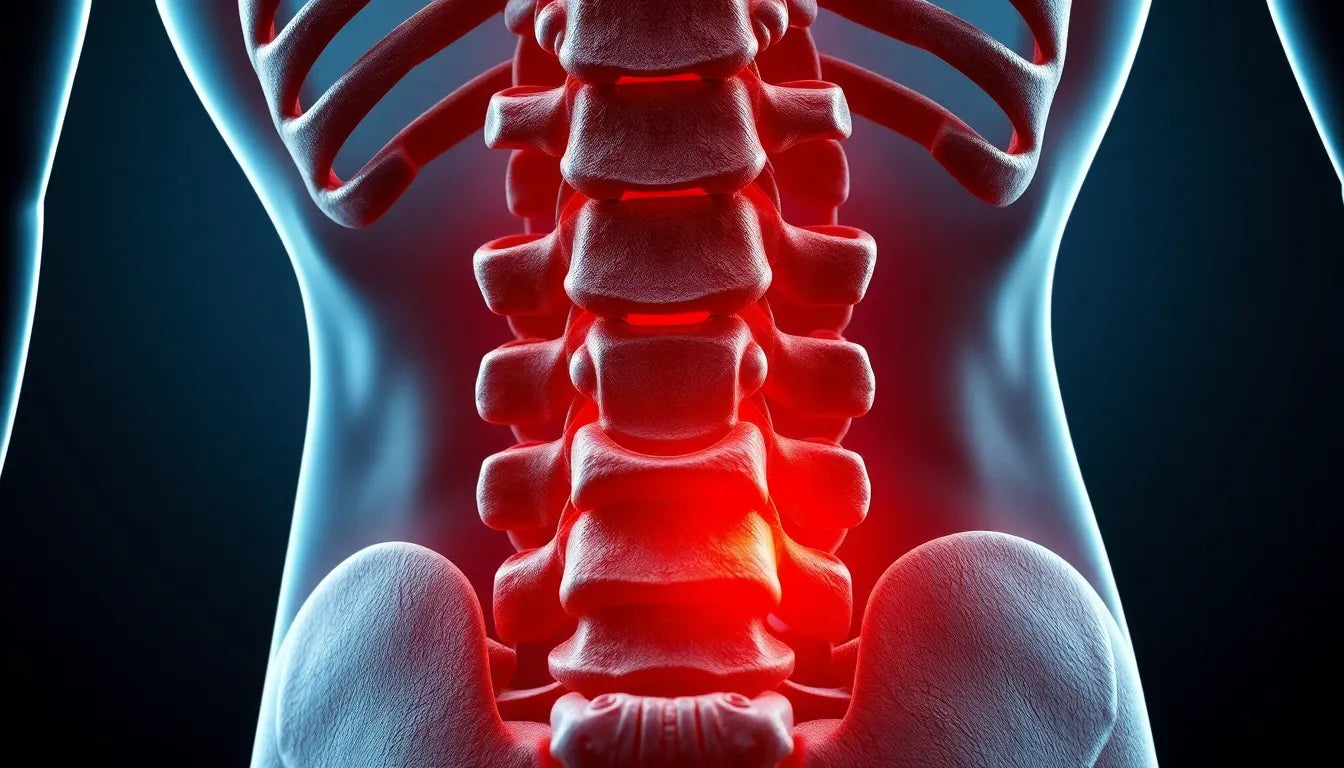Living with a herniated disc can be a daily struggle, affecting everything from your ability to work to the simple act of getting out of bed in the morning. This common yet often debilitating condition raises an important question: is a herniated disc a disability or merely a hurdle to overcome? Understanding the impact of a herniated disc on daily life is crucial, as it can significantly influence one's mobility and overall quality of life.
understanding herniated discs
A herniated disc, also known as a slipped or ruptured disc, occurs when the soft, gel-like center of a spinal disc pushes through a crack in the tougher exterior casing. This condition can result from wear and tear over time, known as disc degeneration, or from sudden injury. Symptoms often include pain, numbness, or weakness in the limbs, depending on the location of the herniated disc. For many, these symptoms can become a significant barrier to performing everyday tasks.
The implications of a herniated disc extend beyond physical discomfort. The pain and mobility issues associated with this condition can severely limit one's ability to engage in regular activities, such as walking, sitting for extended periods, or lifting objects. This can lead to a decreased quality of life, as individuals may find themselves unable to enjoy hobbies, maintain employment, or even perform basic self-care routines without assistance.
is a herniated disc a disability?
Determining whether a herniated disc qualifies as a disability involves examining the severity of the symptoms and their impact on daily life. While some individuals may manage their condition with minimal disruption, others experience chronic pain and significant functional limitations. The distinction often lies in the degree to which the herniated disc impairs one's ability to perform essential tasks.
To qualify as a disability under legal and medical standards, a herniated disc must meet specific criteria. These typically include documented evidence of nerve root compression, sensory or motor loss, and other medical findings that demonstrate a substantial limitation in physical capabilities. Understanding these criteria is essential for those seeking disability benefits, as the process requires thorough documentation and often involves navigating complex legal and medical systems.
In this blog post, we will delve deeper into the criteria for qualifying a herniated disc as a disability, explore the challenges faced by individuals in the application process, and discuss potential solutions for managing the condition. Whether you are personally affected by a herniated disc or seeking information for a loved one, this guide aims to provide clarity and support on this challenging journey.
understanding disability qualification for herniated discs
When considering whether a herniated disc qualifies as a disability, it's crucial to understand the definitions and criteria set by authoritative bodies like the Social Security Administration (SSA) and Veterans Affairs (VA). These organizations have established specific guidelines to determine the eligibility for disability benefits, focusing on the severity of the condition and its impact on an individual's ability to perform essential daily activities.
criteria for disability under social security and va standards
The SSA evaluates herniated discs under the "Disorders of the Spine" category, specifically in the Blue Book Listing 1.04. This listing outlines the necessary medical evidence required to qualify, such as nerve root compression, limited spinal motion, and sensory or motor loss. The presence of these symptoms must be documented through objective medical evidence, including MRI scans and physician reports, to support the claim.
Similarly, the VA uses a rating system to assess the degree of impairment caused by a herniated disc. Veterans must demonstrate that their condition significantly affects their ability to perform work-related activities. The VA assigns a disability rating based on the severity of symptoms, which can influence the level of compensation a veteran receives.
severity and impact on daily life
The severity of a herniated disc's symptoms plays a pivotal role in the disability qualification process. Chronic pain, numbness, and mobility restrictions can severely limit an individual's capacity to engage in routine activities such as standing, walking, or lifting. To illustrate the varying impact of symptoms, consider the following table:
| Symptom | Impact on Daily Activities |
|---|---|
| Chronic Pain | Difficulty standing or sitting for extended periods |
| Numbness | Challenges with balance and coordination |
| Weakness | Inability to lift objects or perform physical tasks |
These symptoms, when severe, can justify a herniated disc as a disability, provided there is sufficient medical documentation to substantiate the claim.
process and challenges in obtaining disability benefits
importance of documentation and evidence
Successfully obtaining disability benefits for a herniated disc hinges on comprehensive medical documentation. Essential records include MRI scans, detailed physician notes, and results from functional testing. These documents must clearly demonstrate the extent of the impairment and its impact on the individual's daily life.
Unfortunately, many claims are denied due to insufficient documentation or a lack of evidence showing significant functional limitations. This underscores the necessity of thorough and precise medical records to support the application.
legal and medical perspectives
Navigating the disability claim process can be daunting. Legal and medical experts often emphasize the importance of professional guidance to strengthen claims. Engaging with a knowledgeable attorney or healthcare provider can offer valuable insights into the intricacies of the application process and help ensure that all necessary documentation is in order.
In conclusion, while a herniated disc can qualify as a disability, the path to obtaining benefits requires careful preparation and documentation. Understanding the criteria and seeking professional assistance can significantly enhance the likelihood of a successful claim.
navigating the disability application process
Applying for disability benefits due to a herniated disc involves a structured process that requires patience and meticulous attention to detail. Understanding the steps involved can increase the likelihood of a successful application. The process begins with gathering comprehensive medical documentation, including MRI scans, physician notes, and any relevant functional testing results. These documents must clearly demonstrate the severity of the condition and its impact on daily activities.
Once the necessary documentation is collected, applicants must complete the Social Security Administration (SSA) application or, for veterans, the Veterans Affairs (VA) application. It's crucial to ensure that all forms are filled out accurately and completely, as incomplete applications can lead to delays or denials. After submission, the application will be reviewed, and a decision will be made based on the provided evidence.
If an application is denied, which is common in initial submissions, applicants should not be discouraged. The appeals process is a critical step where additional evidence can be submitted, and the case can be reconsidered. Persistence and thoroughness in documenting the condition's impact are key to navigating this process successfully.
exploring alternative management strategies
While pursuing disability benefits, individuals with a herniated disc can explore alternative strategies to manage their symptoms and improve their quality of life. Non-surgical approaches, such as physical therapy, can be effective in alleviating pain and improving mobility. Physical therapists can tailor exercises to strengthen the muscles supporting the spine, which may reduce the strain on the herniated disc.
Ergonomic aids also play a significant role in managing the discomfort associated with a herniated disc. Products such as ergonomic chairs, standing desks, and supportive cushions can help maintain proper posture and reduce pressure on the spine during daily activities. These aids can be particularly beneficial for individuals who spend long hours sitting or standing, as they provide necessary support and comfort.
Lifestyle adjustments, including weight management, regular exercise, and mindful movement practices like yoga or Pilates, can further contribute to symptom relief. These approaches not only help manage the physical aspects of a herniated disc but also promote overall well-being.
frequently asked questions
Can I get disability for a herniated disc?
Yes, it is possible to receive disability benefits for a herniated disc, but it depends on the severity of the condition and the documented impact on your ability to work and perform daily activities. Comprehensive medical evidence is essential to support your claim.
What medical evidence do I need?
Essential medical evidence includes MRI scans, nerve tests, physician notes, and documentation of chronic symptoms affecting mobility. This evidence should clearly demonstrate the functional limitations caused by the herniated disc.
What is the process to apply for benefits?
The process involves gathering all necessary medical documentation, completing the SSA or VA application, and submitting it for review. If initially denied, you should be prepared to go through the appeals process, where you can provide additional evidence to support your claim.
Are there alternative ways to manage a herniated disc?
Yes, there are alternative ways to manage a herniated disc. Ergonomic aids, physical therapy, and lifestyle adjustments such as regular exercise and weight management can help alleviate symptoms and improve quality of life. These strategies can be used alongside pursuing disability benefits to enhance daily comfort and functionality.
Sources
- Atticus. "Does a Herniated Disc Qualify for Disability?"
- Hill & Ponton. "VA Disability Ratings for Herniated Discs."
- Dr. Kevin Pauza, MD. "Your Herniated Disc Disabilities May Be Denied."
- SSA. "1.00 Musculoskeletal Disorders - Adult."
- Dr. Bill Latour. "Can You Get Disability For a Herniated Disc in California?"
- My Philadelphia Disability Lawyer. "Herniated Disc Disability | Getting Benefits and Claim."
- SEMrush. "What Is a SERP Analysis & How Can You Do One?"
- Victorious SEO. "SERP Analysis: What It Is & How To Do It."
























